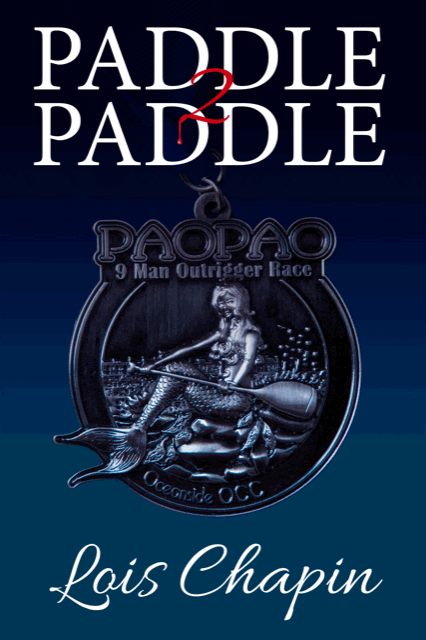Offering readers a brutally honest mirror, Paddle to Paddle is a surprising new collection of poetry from Lois Chapin, a therapist who has channeled her ample wisdom and experience into a raw display of truth-telling and wise insight.
When most poets embark on releasing a new body of work, it is with a general theme in mind, an intention for their verses, some message they want to share, even if that message is opaque or buried in metaphor. There are other poets, however, like Chapin, who touch on life in all of its messiness and truth without a clear focus, yet deliver unforgettable moments on the page.
Even so, there is a great deal of specificity in the poems; these verses are not meant to be esoteric or riddled with allusions. The list of struggles and challenges tackled in this collection are all-encompassing, perhaps reflecting the variety of patients and problems Chopin has spent her life hearing and unpacking. Varying between first-person and omniscient storytelling, it is often unclear whose mind or experiences are being explored, giving the book a sense of mystery, or at least keeping the poet at a cautious distance.
The style of poetry varies as much as the subject matter; some pieces are peppered with imagery, but no clear narrative voice, like snippets from a dream. Other poems are close to prose with line breaks artfully arranged, but lacking much obfuscation or abstract secrets for readers to unravel. The words Chapin uses are raw, direct, and incisive, and she is unafraid of revealing biases and petty judgments, with the poet never claiming to sit atop an ivory tower of artistic or personal authority.
These poems get down in the mud and madness of life: random encounters with racists, snapshots of societal tragedy, abuse, grief, poverty, relocation, addiction, and struggles with honest communication, among so many others. In “Radio Frequency,” Chapin manages to brilliantly explore impossible ideals of beauty, the struggle of aging, xenophobia and the present-day refugee crisis within a single page. That concentration of thought and meaning makes this a dense read, but an unforgettable one.
In “Slab City,” one of the few prose pieces in the collection, Chapin digs into the challenge of motherhood and attempts to connect across generations with her son. Even in the banality of that car ride, there are impactful moments and observations, clever connections that blossom and change. Just as there is no clear message behind the collection, each poem is similarly flexible; rarely is a single theme or idea distilled into a single, focused piece. Unpredictable poetry is always a pleasure to read, and this talented wordsmith definitely keeps readers on their toes, shifting moods and subjects with ease.
In some of the poems with more choppy or image-based content, the choices concerning enjambment aren’t always clear. For the most part, the poems flow naturally, and can be read through without close reading or intense dissection, but giving more attention and intention to poetic structure could smooth over the occasional rough moment.
As a collection, Paddle to Paddle is eclectic and electric, filled with taboos and secrets, perfect for reflective consumption that acts as a form of therapy, as well as a work of poetic artistry.
Book Links
STAR RATING
Design
Content
Editing
Get an Editorial Review | Get Amazon Sales & Reviews | Get Edited | Get Beta Readers | Enter the SPR Book Awards | Other Marketing Services
























Leave A Comment